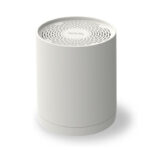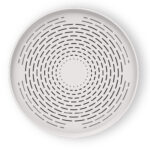Indoor pollution: a problem for health but also for the economy

Health effects

Indoor pollution is a significant problem for both human health and the economy. Exposure to indoor pollutants such as fine particulate matter (PM2.5 and PM10), volatile organic compounds (VOCs), radon, and tobacco smoke can cause respiratory diseases such as asthma and chronic bronchitis, and can result in adverse effects on the nervous system causing cognitive problems and developmental disorders in children. Some indoor pollutants, such as radon and tobacco smoke (active and passive), are known carcinogens and may increase the risk of developing lung cancer.
Considering that the air inside enclosed spaces can be much more polluted than the air outside, and taking into account that we spend most of our days indoors, it is good to monitor and know what you breathe on a daily basis to preserve your health and the integrity of our living spaces.
Translated with DeepL.com (free version)
Effects on the economy

Diseases caused by indoor pollution result in high health care costs, including hospitalization, doctor’s visits, treatments and medications. These costs burden public and private health care systems. Identifying and mitigating sources of indoor pollution can result in significant costs; prevention through air quality control will bring both health and cost benefits.
Diseases related to indoor pollution can lead to reduced productivity due to sick leave and reduced work capacity. This negatively impacts businesses and the economy in general.
Buildings with indoor pollution problems can see a reduction in their market value. Awareness of the risks associated with indoor pollution causes buyers and tenants to be more cautious, negatively affecting the housing market. Knowing air quality to improve the situation (should it be necessary) would benefit both parties for numerous reasons.
Global costs of diseases caused by pollution

According to a study by the Lancet Commission, pollution (both indoor and outdoor) was responsible for about 9 million premature deaths, costing the global economy about $4.6 trillion annually, or about 6.2 percent of the world’s gross domestic product (GDP).
In Europe, health costs associated with air pollution are estimated at 330 to 940 billion euros per year, taking into account medical expenses, lost work days and costs associated with premature death, according to the European Environment Agency.
In the United States, air pollution has been associated with annual costs of about $131 billion in health care costs and lost productivity, according to a study published in PNAS (Proceedings of the National Academy of Sciences).
The heaviest costs, of course, are the intangible ones that include pain and suffering for patients and their families, as well as decreased quality of life.
Radoff’s solutions

Indoor pollution is a complex problem that affects the whole world and requires a multidisciplinary approach to be addressed effectively. Investing in the prevention and improvement of indoor air quality will not only serve to protect human health but can also lead to significant long-term economic savings.
The use of sensors for continuous monitoring of indoor air quality can help identify and address many pollution-related problems in a timely manner.
Learn about Radoff’s solutions:
If you have a business and want to preserve the well-being of employees and customers, contact us to discover the perfect solution for your business sector.
Contact: info@radoff.life







